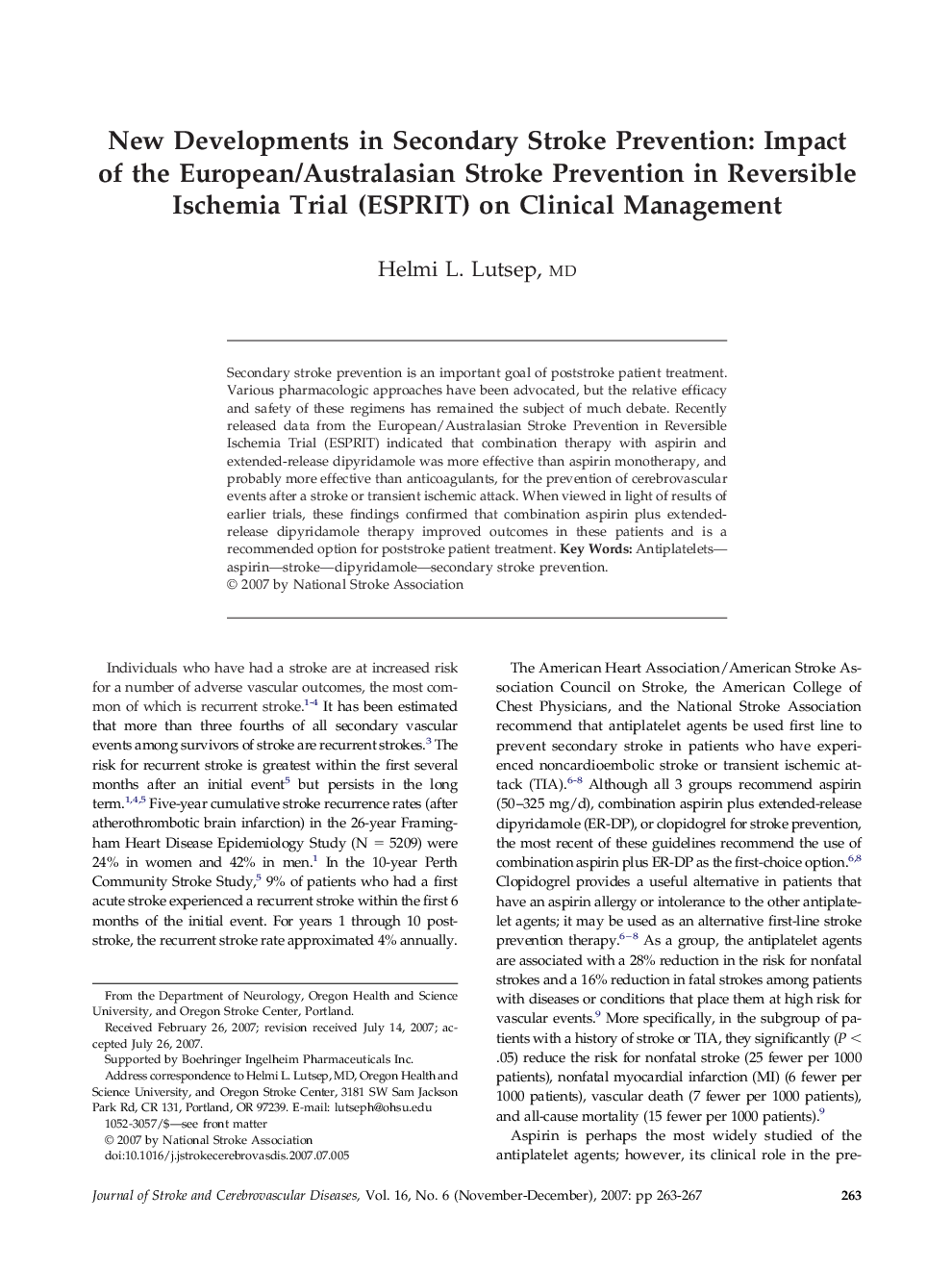| Article ID | Journal | Published Year | Pages | File Type |
|---|---|---|---|---|
| 2704680 | Journal of Stroke and Cerebrovascular Diseases | 2007 | 5 Pages |
Abstract
Secondary stroke prevention is an important goal of poststroke patient treatment. Various pharmacologic approaches have been advocated, but the relative efficacy and safety of these regimens has remained the subject of much debate. Recently released data from the European/Australasian Stroke Prevention in Reversible Ischemia Trial (ESPRIT) indicated that combination therapy with aspirin and extended-release dipyridamole was more effective than aspirin monotherapy, and probably more effective than anticoagulants, for the prevention of cerebrovascular events after a stroke or transient ischemic attack. When viewed in light of results of earlier trials, these findings confirmed that combination aspirin plus extended-release dipyridamole therapy improved outcomes in these patients and is a recommended option for poststroke patient treatment.
Related Topics
Health Sciences
Medicine and Dentistry
Clinical Neurology
Authors
Helmi L. MD,
